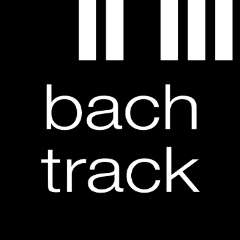The setting for Friday evening's concert could not have been bettered: Nicholas Hawksmoor's magnificent Christ Church in Spitalfields, restored in 2004. You go up the steps of the splendid porch into a short-naved white church of soaring ceiling and classical elegance: simple and spotless. It's an elegant setting for the clear voices of the Monteverdi choir, matched by a perfectly suited acoustic, with just the right amount reverberation to enhance the choral singing without muddying the orchestral accompaniment.
Although Bach's Christmas Oratorio was conceived as a single unified work, it was not designed to be played at a single sitting: the idea is that one cantata should be performed on each of six days. Sir John Eliot Gardiner and the Spitalfields Festival organisers have reproduced this by arranging a series of six concerts, each of which starts with a motet, followed by one of the six Brandenburg Concerti and then one cantata from the Oratorio. The programme works well, resulting in a fairly short concert with a good variety of music and keeping to the intent of the original.
Friday's programme opened with the motet Der Geist hilft unser Schwachheit auf ("The Spirit doth our weakness help"), which showed off both choir and ensemble to best advantage, with Gardiner's impeccable control of dynamics producing wonderful lilts and waves of sound. Throughout the evening, the sound balance between voices and orchestra was everything you could ask for, as was the balance between different instruments. I've not always been a devotee of the use of period instruments - violins and cellos, it seems to me, were distinctly improved by Stradivari and his peers - but a few more concerts like this are likely to convert me: the tonal quality of every instrument shone through, with the sound of baroque flutes and oboes particularly beguiling.
The church acoustic didn't work quite so well for the Brandenburg Concerto no. 5, as much of this is centred around a harpsichord part that did rather get lost in the wash of other instruments. With the other instruments quiet, though, Matthew Halls' rendering of the first movement cadenza, however, was outstanding: lucid, precise and virtuosic. The cadenza is quite a showpiece: different stories relate either that Bach wrote it to have been written to show off a new harpsichord or that it was written for a competition in Dresden. For the second movement, the English Baroque Soloists were reduced to just a trio of violin, flute and harpsichord, who played the movement quite beautifully. As ever, I can't help being struck by how vivid is the experience of hearing this music performed live: I've listened to the Brandenburg Concerto many times on CD, in a wonderful recording by Christopher Hogwood, without anything like this impact. Strangely, I think I will now get a lot more out of the recording, simply because it will evoke the memory of this live performance.
And so on to the Christmas Oratorio. Gardiner writes in his notes to this concert that "Christmas without Bach's music is unthinkable". The Christmas spirit that Bach captures isn't the one I would normally associate either with a Germanic Protestant-work-ethic view of the world or with a great deal of Bach's demanding, complex and definitely sober music: it's a simple outpouring of pure joy and rapture. The music seems to see the Christmas as a true gift from God, sent to mankind to brighten the cold and darkness of a northern winter.
The cantata being played this evening was no. 3, on the theme of the Adoration of the shepherds, and the spirit was evident from the first notes: a joyous trumpet fanfare, followed by a bright, merry chorus, with the opening line handed across the stage to each part of the choir in turn. The centrepiece of the work is a duet between soprano and bass around the words "macht uns frei" (makes us free) which projects pure rapture, followed by a very operatic alto aria, sung gloriously by Clare Wilkinson after a lovely violin and cello opening. The surrounding recitatives and choruses were all performed with the same clarity of tone and sense of pace and happiness.
The last three cantatas are being performed in early January (details here). I'm not able to go, sadly, but for anyone wanting a taste of Bach's music played wonderfully in ideal surroundings, you won't do better.
David Karlin 12th December 2008


